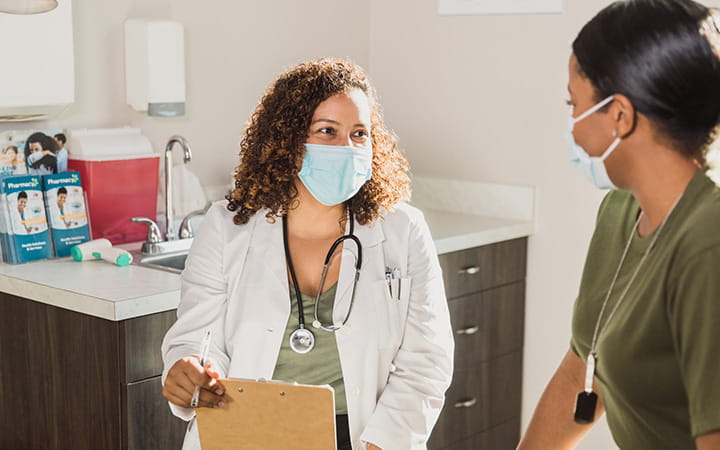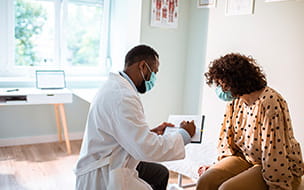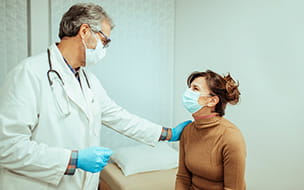
Annual Physical Exams at University Hospitals
Focused on health promotion and preventive care, annual physical exams or checkups are essential to living a long, healthy life. If you’re overdue for a yearly checkup, find a primary care doctor and schedule your exam today.
Welcoming New Patients
Call 216-553-5343 to book an appointment.
Schedule NowBe Prepared
To make the most of your annual physical, bring the following information with you at your appointment:
- Details about your personal and family health history and known risk factors.
- A list of any specialists or other providers you see. This will help your primary care provider coordinate your overall care.
- A list of the prescriptions, over-the-counter medications, supplements and vitamins you’re taking, or are having difficulty taking.
In addition, prior to your visit, take note of any recent changes in your physical and mental health so that you may better inform your doctor of any concerns or potential health issues.
For further information on preparing for your appointment, see our Yearly Primary Care Checklist.
What Happens at an Annual Physical Exam?
Every annual checkup is unique, depending on the provider and the patient. However, most yearly physical exams will include the following:
Patient History Review
Review your current health problems, as well as your medical, surgical, family and social histories.
Review of Current Health Providers
Establish or update a list of your current healthcare providers.
Medication Review
Review and document current medications, supplements and any medical equipment you use.
Check Vitals
Check your blood pressure, heart rate, respiration rate and temperature.
General Appearance
Your doctor can obtain useful information just from observing and talking to you. Does your skin appear healthy? Do you have trouble standing or walking? How is your memory and mental quickness?
Heart Exam
You doctor can detect an irregular heartbeat, a heart murmur, or other indicators of heart disease by listening to your heart with a stethoscope.
Lung Exam
Using a stethoscope, your doctor can hear wheezing and other sounds that may indicate the presence of lung or heart disease.
Head and Neck Exam
Opening up and saying “ah” lets your doctor see your throat and tonsils. Also, the condition of your teeth and gums provides information about your overall health. Ears, eyes, nose, sinuses, lymph nodes, thyroid, and carotid arteries may also be examined.
Abdominal Exam
Your doctor may press, tap or listen (with a stethoscope) to your abdomen to check for abnormal liver size or tenderness, the presence of abdominal fluid, and other related issues.
Neurological Exam
Nerves, reflexes, muscle strength, balance and mental state may be evaluated.
Dermatological Exam
Examination of the skin and nails can identify dermatological issues and find signs of other diseases originating in other parts of the body.
Extremities Exam
Your doctor may move your limbs to check joint movement, ask you questions about sensations in your limbs, or use a rubber hammer to check your reflexes.
Screening & Vaccinations Review
Your provider will discuss and schedule preventive screenings and vaccinations recommended for you based on your age, risk factors and family history.
Mental Health Screening
Primary care physicians can screen for and treat common mental health disorders, including depression, anxiety, post-traumatic stress disorder and substance use disorders.
Patient Education
Provide education and referrals based on other components of the visit.






